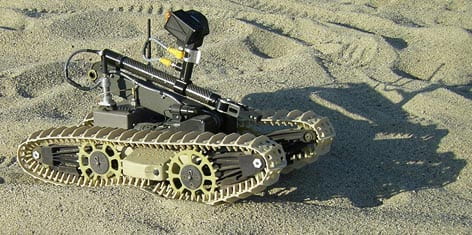Affiliated Faculty
Several faculty members from the UT Arlington College of Engineering bring a richness and depth of unmanned systems expertise to the FAA test site project.

Dr. Kamesh Subbarao, Mechanical and Aerospace Engineering
Focus Areas:
Position determination of UAVs using sensors, tracing them for conflict prediction and collision avoidance. Development of systems to use existing cellular infrastructure and the Internet to provide locations of UAVs, especially in non-GPS areas.

Dr. Frank Lewis, Electrical Engineering
Focus Areas:
Controls for unmanned Systems. UAV work includes Quadrotor UAV, dynamic modeling, flight control and autopilot control structures. Nonlinear control systems, networked dynamical agents on communication graphs, multi-player game theory, and adaptive learning systems. http://www.uta.edu/utari/acs/

Dr. Yan Wan, Electrical Engineering
Focus Areas:
Controls for unmanned Systems. UAV work includes Quadrotor UAV, dynamic modeling, flight control and autopilot control structures. Nonlinear control systems, networked dynamical agents on communication graphs, multi-player game theory, and adaptive learning systems. http://www.uta.edu/utari/acs/
Certificate Program
Beginning in the Fall of 2014, the University of Texas at Arlington will offer an unmanned vehicle systems undergraduate certificate. A collaboration between the College of Engineering and the University of Texas at Arlington Research Institute, the program will offer students in a range of engineering disciplines the opportunity for specialized training in one of the nation’s most exciting engineering fields.
“Our faculty members and student teams already are designing these systems, building them and programming them to perform tasks to aid humankind,” Dean Khosrhow Behbehani said. “Whether these systems are used for aerial photography, security, transportation, product delivery or outer space exploration, unmanned vehicle systems will be integral to the future of engineering.”
One industry study by the Teal Group found that annual unmanned aerial vehicle spending would more than double during the next decade to reach about $11.6 billion. The industry, the report said, would generate more than $89 billion in spending over the next decade.
The University plans to start a new, graduate-level unmanned vehicle systems certification soon. Read more about the program at the UT Arlington News Center. For more information about the undergraduate unmanned vehicles systems certificate, please contact Pranesh Aswath, associate dean for graduate affairs in the College of Engineering, at aswath@uta.edu or visit the website here.
Autonomous Systems Lab
UTARI’s dedicated Autonomous Systems Laboratory is home to a wealth of research and development resources for ground, water and air unmanned vehicle systems. The Autonomous Systems Lab includes a variety of platforms and equipment for our student robotics competition teams, a wide range of unmanned aerial vehicles (everything from quadrotors to fixed wing aircraft), and command and control systems. Currently, research is focused on communications uncertainty research, wind field construction for trajectory prediction, impact of trailing wake vortex and turbulence, rapid conflict avoidance, automatic emergency landing, and development of a low-cost UAS tracking system.
For more information about the Autonomous Systems Lab, please visit https://utari.uta.edu/research/robotics/asl/.






